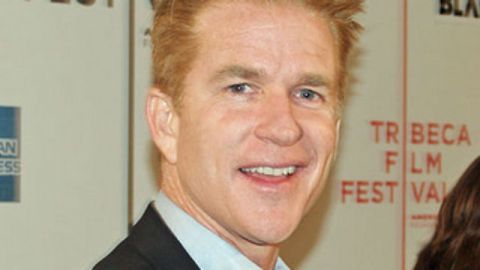“And the Band Played On” Challenges Today’s Definition of Urgency

One of the most memorable moments in the HBO film And the Band Played On, honored at this year’s Tribeca Film Festival to celebrate the film’s 20th anniversary, is a scene where an AIDS researcher, in 1983 New York, fights over a public payphone in Grand Central. In the 24-hour Twitter news cycle—a constant stream of urgency—having to wait for a pay phone ushers us back to a time when the media stayed on top of actually important stories, longer. It challenges today’s notion of urgency.
Based on San Francisco Chronicle reporter Randy Shilts’ masterpiece book, by the same name, And the Band Played On tells the story of the scientist-first-responders who urgently worked to stop a baffling, potentially doomsday disease. Their antagonists included the ego of a renowned scientist at Harvard, Robert Gallo, whose fight for accolades threatened to undermine a research breakthrough, and the harsh austerity policies of the Reagan Administration, which turned a blind eye on the growing epidemic.
While the film zips around capturing the different people who played major roles at the start of the crisis, dramatizing Shilts’ five years of exhaustive reporting, it all orbits around one seminal researcher, Dr. Don Francis played by Matthew Modine. Though young, Francis already had a reputation for leading teams responsible for epidemic control around the world. The film opens with Francis, covered up in protective clothing, standing over a mass grave in Africa, and stupefied by the outbreak of the Ebola virus, a foreshadowing of a much larger, more mysterious epidemic to come.
The Tribeca Film Festival and Sloan Foundation hosted a retrospective screening this past weekend, followed by a Q&A panel with the film’s star Matthew Modine, Philadelphia screenwriter Ron Nyswaner, science writer and How to Survive a Plague filmmaker David France, and Dr. Robert S. Klein, Chief of the Division of Infectious Diseases, about the impact of storytelling on the AIDS crisis. Filmmaker Tom Kalin moderated.
Opening the discussion, Modine quipped that he didn’t deserve to be the film’s top-billing:
I’d forgotten that my agent Ed Lamoto had negotiated above the title billing. Completely unwarranted. This was a film that was put together by HBO. Our artistic community was being so ravaged by HIV. [It was] important to bring everybody from the community together to make the film, to help to raise awareness, to help people understand that AIDS wasn’t a disease that had a sexual preference. That it was a disease, you know, at that time, in 1985, people thought was a population leveler. The doctors I did research with at UCLA [for my role] were terrified that this was going to extinguish hundreds of millions of people. Thankfully progress has been made, it’s gotten better and better. We have all those doctors to thank for that.
When asked by Kalin, the moderator, about how he prepared to play the role of Don Francis, Modine told a funny story that summed-up Francis’s passionate dedication to fighting viruses:
It’s a terrible story, my meeting Don Francis. There was another script that I read called The Ghost of the Green Monkey, which was a conspiracy film that the Centers for Disease Control and some other people were actually responsible for the creation of what they called the “t-cell destroyer,” they wanted to have something that would compromise people’s immune systems because of the ever exploding population. In Africa, people were getting vaccinated for hepatitis, because of Vietnam, and intravenous drug use, there was a big outbreak of hepatitis. And so they went to Africa to pick up this blood, and the blood got put in a centrifuge, and that centrifuge allowed this “t-cell destroyer” that the Center for Disease Control was responsible for creating to get into the general population and turn into the virus that we know. And I told that to Don Francis. He looked like he was going to reach over the table and punch me in the mouth.
Don Francis continues his AIDS research as the Principle Investigator and Executive Director of the Global Solutions for Infectious Diseases, which he co-founded with Carter A. Lee.
While treatment for people with AIDS and HIV has improved–there’s promising research out of Denmark for an HIV cure, and a few exceptional former AIDS patients have been making headlines recently–a cure has yet to be made official, and affordable.
Image Credit: david_shankbone/Flickr





